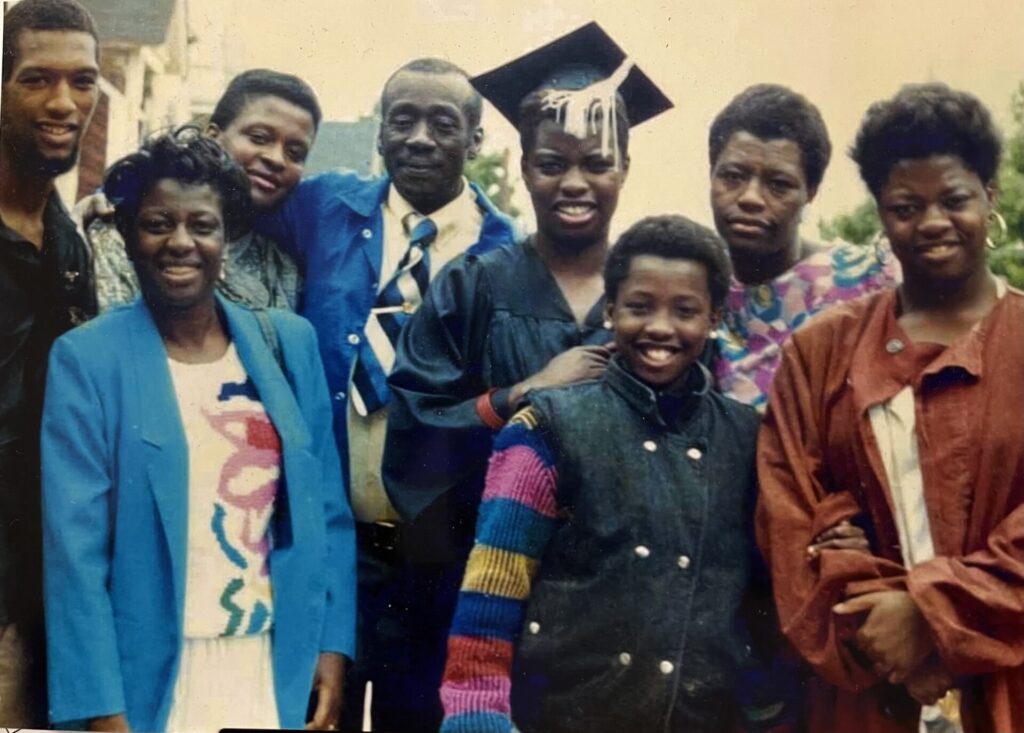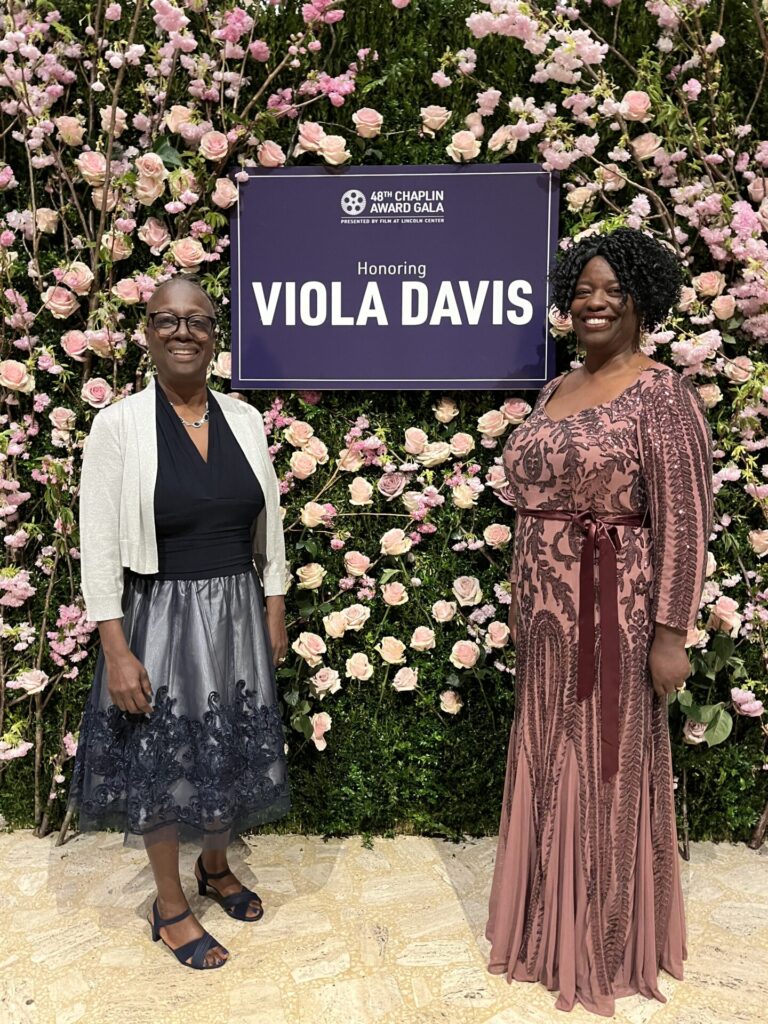
This year, the Council for Opportunity in Education kicked off its third annual Opportunity Matters Book Club National Speaker Series on Thursday, April 27, with a special discussion of Finding Me: A Memoir by internationally-acclaimed actress Viola Davis. This year, Davis became one of fewer than 20 people in history to achieve EGOT status, adding a Grammy for her audio narration of the book to her previous accolades, which include an Emmy, Oscar, and two Tonys for her dramatic gifts.
But before she was a star and an inspiration to millions, she was one of five sisters and a brother, struggling with her family to survive and succeed in one of the smallest and poorest cities, Central Falls, Rhode Island. Her humble beginnings make for a riveting memoir.
To help launch this year’s National Speaker Series, COE enlisted two special guests – Viola’s sisters, Deloris Davis Grant and Dianne Davis Wright. Wright, the oldest of the Davis sisters, worked for the federal government for 40 years before her retirement. Grant teaches English and Drama at Central Falls High School in Rhode Island, the same school from which she and Viola graduated and where in 2016, the street leading to the school was renamed “Viola Davis Way.”
My first summer in Upward Bound had such a powerful effect on me. It was such a dramatic experience, making so many friends and having people that did not look like me befriend me… and I had three square meals a day! Upward Bound did impact my life, and it continues to impact my life.
Deloris Grant
The sisters’ parents, Mae Alice and Dan Davis, moved the family from a plantation in South Carolina to Central Falls in 1965 in search of better job opportunities. But the family endured wrenching poverty, which scarred and shaped the sisters.
Wright spoke first. “This book is more of a love story to an 8-year-old. That’s how I see it. [Viola] wanted that 8-year-old to know that everything is ok with her life: her upbringing, her education, her color, her looks, everything.”
“I am so lucky to have my sisterhood, to belong to the club of the Davis girls,” said Grant. Ever the teacher, she read an excerpt from Chapter 7: “We all needed one another. None of us could fight individually. I know I didn’t have enough strength. We were fighting a war with seen and unseen enemies. Our commitment was to the whole. It was together or nothing ethos.”
“Viola’s story is my story, too,” Wright said.
One student participating in the discussion asked if Viola consulted with her sisters on the memoir.

“Yes, she consulted with me,” said Wright. “But you have to remember that this is her story. This is her story in her words.”
Another asked what their reaction was when they first read the book.
Grant said she listened intently to the audio version of the book, which Davis narrated. “It brought the story to life for me,” she said. “When I listened to it, I was more drawn into it emotionally.”
Wright said, “I read the entire book. I wanted to see and understand, and I thought it was amazing.”
Both women said that the Upward Bound program improved their lives. Grant, three years older than her sister Viola, was enrolled with Viola in Upward Bound, and the experience brought the two sisters closer together.
“Upward Bound prepared me for after high school, not just education,” Wright said. “[Upward Bound] is a special club that I entered from the age of 15. I tell the whole world about it. Stick with it,” she said.
“My first summer in Upward Bound had such a powerful effect on me,” Grant said. “It was such a dramatic experience, making so many friends and having people that did not look like me befriend me… and I had three square meals a day! Upward Bound did impact my life, and it continues to impact my life,” she said. It motivated her to get her master’s degree, and, she said, “I’m still going strong.”
One student asked what advice the Davis sisters had for those who have been traumatized and feel they cannot change the trajectory of their lives.
“Communication is the key,” Wright said. “You have to reach out, because if you don’t, they can’t grab your hand to help you out of what you are in.”
“You are never, ever alone. You have got to reach out,” Grant said. “You’ve got to find someone, something that makes you happy, something within yourself. Find someone you trust, but you are never alone.”
Both women, throughout the conversation, marveled at what they had been through and the many achievements of the women in their family. They agreed that their mother was intrinsic to their journey.
“My mother has always been my hero,” Wright said. “She didn’t have to give me money or fancy clothes. I didn’t need any of that. She was there for me during the bad times, not just for me but for her also. And I figured if she can be this strong, from getting married at the age of 15 and having a first child at 16, if she could have a life like that and not fall apart, I knew there was some way I had to pull myself up to be like her.”